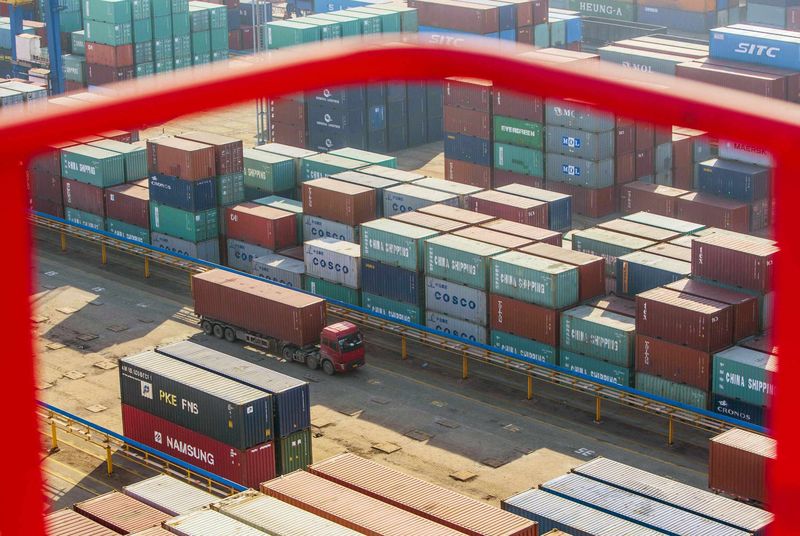By Henning Gloystein
SINGAPORE (Reuters) - A surprising plunge in China's imports shows that Asia's largest economy is still losing momentum despite a raft of stimulus measures, though global price moves and the impact of holidays may have overstated the extent of the downturn.
January imports tumbled 20 percent from a year earlier, the steepest slide since May 2009 when factories slashed inventories in reaction to the global financial crisis. Exports were down an annual 3.3 percent.
The sharp fall in import volumes, led by commodities, suggested China is slowing at an even faster pace than many thought, even after an interest rate cut in November and measures to increase liquidity and encourage banks to lend.
Preliminary data showed coal orders down nearly 40 percent to 16.78 million tonnes from December's 27.22 million tonnes.
China also appeared to cut back on its strategic stocking of crude oil imports, which slid by 7.9 percent from December to 27.98 million tonnes. Oil imports were nearly flat versus the January 2014 total.
"Monthly data is problematic to look at for broader structural trends because stocks tend to distort the data," said Michal Meidan, director of consultancy China Matters.
Factors such as the shifting time of the Chinese New Year holidays, falling global commodity prices and weaker currencies in key exporters also make it difficult to track broader structural trends from one month to the next.
"For oil, it is very much about stocks. The huge imports have been related to SPR (strategic petroleum reserves) fills; demand growth is slowing and consumption is becoming more efficient," Meidan added.
As China's SPRs fill up, its oil import demand could be dropping back to levels more accurately reflecting demand.
Markets did not appear to be too alarmed by the sharp drop in Chinese imports. Benchmark Brent crude oil futures
In the coal sector, falling Chinese imports are not just down to declining demand but also to policy efforts to protect domestic miners suffering from slowing growth and anti-pollution policies.
Overall, the January data did still show weakening domestic demand and sluggishness in the industrial sector, HSBC economists said, and markets expect Beijing policymakers will resort to further easing measures in response.
Deutsche Bank chief economist Zhiwei Zhang said an annual 9.5 percent fall in automobile imports was evidence of weak consumer demand and carried downside risks for economic growth.
"We continue to expect two interest rate cuts in March and the second quarter, and one reserve requirement ratio cut (for banks) in the second quarter," he said.
